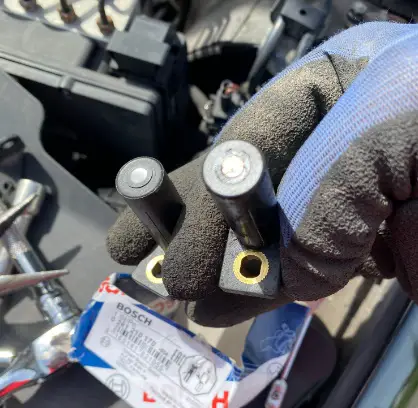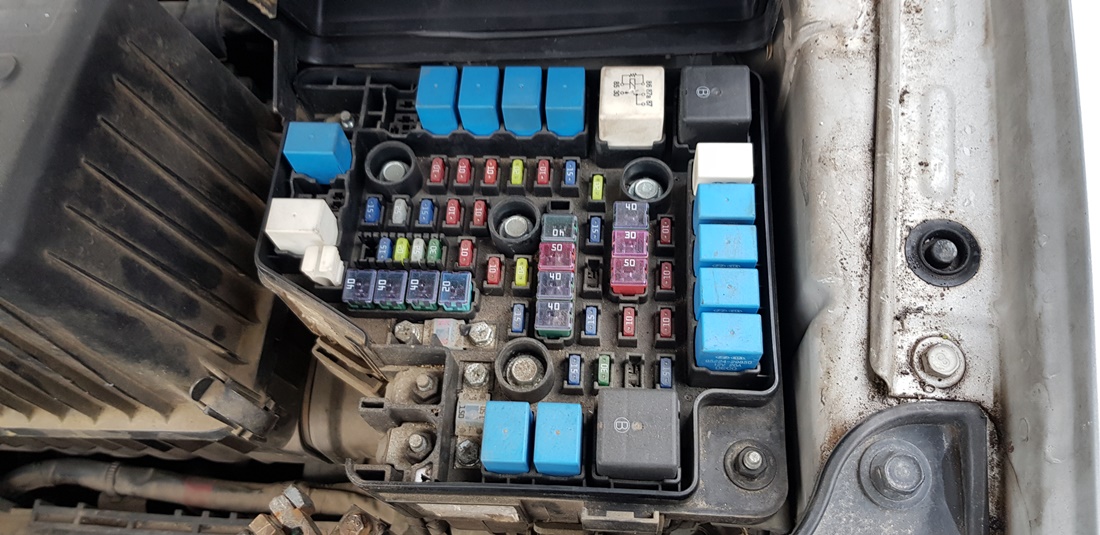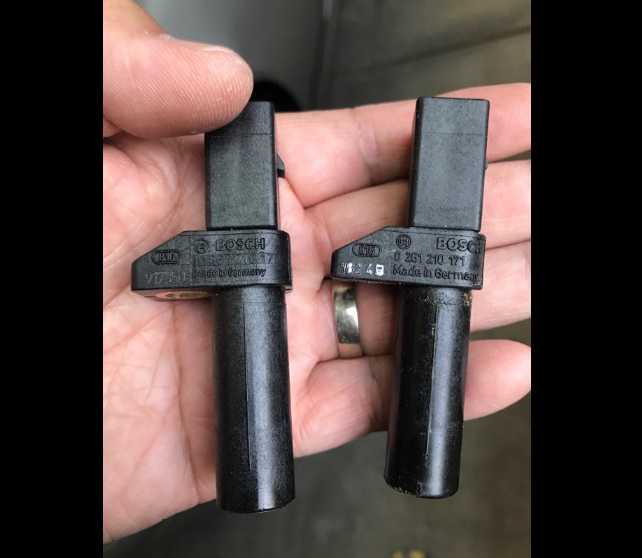Engines are complex and have many components which all are required to work flawlessly in order to have a high-performance engine.
But, all engines will be worn out after some time. You can prevent and delay your car engine from going bad. Here are 12 signs that your engine is going bad:
- Key Takeaway
- 12 Signs Your Engine Is Going Bad
- 1. Rod Bearing Making Knocking Noise
- 2. Main Bearing Noise
- 3. Metal Shaving in Engine Oil
- 4. No Engine Oil – Lack of Lubrication
- 5. Worn Engine and Extremely Low Power
- 6. Engine Misfire
- 7. Clicking Noise
- 8. Sudden Loss of Power Due To a Broken Timing Belt
- 9. Loud Ticking Noise
- 10. Worn Oil Pump
- 11. Severe Engine Overheating
- 12. Fuel Leak and Engine Fire
- What Causes an Engine To Go Bad
- How Many Years Should An Engine Last?
- FAQs
- Q: What does it mean when the check engine light turns on?
- Q: What are some common warning signs of an engine problem?
- Q: What should I do if I notice strange noises coming from my engine?
- Q: Can a rough idle be a sign of an engine problem?
- Q: What causes engine stalling?
- Q: What are the signs and symptoms of a failing engine?
- Q: What should I do if my engine is overheating?
- Q: What does it mean if I see blue smoke coming from the exhaust?
- Q: When should I get my engine checked by a mechanic?
- In Conclusion
Key Takeaway
- Signs that your engine is going bad may include excessive smoke from the exhaust, loss of power or acceleration, strange noises, engine overheating, and a noticeable decrease in fuel efficiency.
- There are several factors that can cause an engine to go bad, including lack of maintenance, overheating, improper lubrication, fuel issues, wear and tear, harsh driving conditions, high mileage, manufacturing defects, and incorrect modifications or installations.
12 Signs Your Engine Is Going Bad
- Rod Bearing Making Knocking Noise
- Main Bearing Noise
- Metal Shaving in Engine Oil
- No Engine Oil – Lack of Lubrication
- Worn Engine and Extremely Low Power
- Engine Misfire
- Clicking noise
- Sudden Loss of Power Due To a Broken Timing Belt
- Loud Ticking Noise
- Worn Oil Pump
- Severe Engine Overheating
- Fuel Leak
1. Rod Bearing Making Knocking Noise

A clear sign that your engine is going bad is when the road bearing starts to make knocking noise. The knocking noise coming from the rod bearing is accompanied by a major decrease in engine power.
Normally this is caused by not changing the engine oil on time and low engine oil. A loud knocking noise usually means the engine can no longer be saved without a complete rebuild of all new parts and machine shop work.
When a rod bearing is worn, it will allow the piston to rock back and forth while hitting against the cylinder walls.
Eventually, the vehicle will throw a rod and cause the engine to seize. The pistons will get damaged from hitting the cylinder walls. Engine oil will slip into the combustion chamber and will burn with the air-fuel mixture.
2. Main Bearing Noise

The main bearing is located between the crankshaft journal and the engine block and has a function to allow the crankshaft to rotate without friction. The crankshaft journal has holes that allow engine oil to pass through them and lubricate the crankshaft journal and main bearing.
In case of not changing the oil on time or lack of engine oil, the main bearing will run dry and cause friction between the crankshaft journal and the main bearing.
A worn or bad main bearing sounds like marbles hitting each other. The noise can also be knocking, rattling, and metallic and will come from the lower end of the engine.
The noise progresses louder as the vehicle increases its speed. A complete rebuild is required and all rods and bearings require replacement. The crankshaft journal must also be resurfaced depending on how worn it is.
3. Metal Shaving in Engine Oil

When the main bearing is severely worn, you will notice metal shaving, copper sheen, or chunks of metal during an oil change. If metal shaving, copper sheen, or metal chunks are found in the engine oil, that means the engine is severely worn and needs to be rebuilt.
If there is a noticeable amount of metal shaving in engine oil, that means the rod and main bearing are worn. You should always inspect the engine oil that you just drained and look for metal shavings. Sometimes large pieces of metal can be found during the inspection.
I have a permanent magnet built on the bottom of my oil pan. The magnet helps collect the metal shaving circulating in the engine oil says Holts Auto.
4. No Engine Oil – Lack of Lubrication

All moving components require some form of lubrication. Even a slight oil leak can leave your engine with insufficient oil. Sometimes drivers do not know the vehicle has lost a considerable amount of engine oil.
Bad oil pump gaskets and seals can cause severe oil leaks over time due to high temperatures. Over time, due to the high temperature, the gasket and seals will begin to deteriorate. When this happens, there will be a large puddle of oil on the ground.
An oil leak can be caused by a bad rear main seal, worn oil pan gasket, severe valve cover gasket leak, bad oil pan drain bolt, bad oil pump gasket, worn camshaft, and crankshaft seal, loose oil fill cap, worn oil cooler gasket, bad oil pressure sensor seal and cracked engine block.
5. Worn Engine and Extremely Low Power
Engines that have high mileage are usually worn out because of the normal wear and tear that comes with all those miles.
A compression test can help determine the cause. Usually, a compression test can help determine worn piston rings, cylinder walls, bad intake or exhaust valves, and bad head gaskets.
All cylinder compression should have a similar reading. Normally, the engine can still be saved by completely rebuilding the engine.
6. Engine Misfire
Regular engine misfires can be a sign that your engine is going bad. An engine misfire can be caused by bad spark plugs, bad ignition coils, oil on coils, water on coils, water in fuel lines/injectors, and a bad PVC valve. You should diagnose the cause of the engine misfire and fix it.
However, if all the above does not fix the issue then most likely the problem is mechanical. Again, a compression test should be performed.
7. Clicking Noise
All moving parts should be lubricated in order to reduce friction and heat. When the timing chain does not receive enough lubrication, it will start to make a loud clicking or tapping noise and gradually become louder when the engine speed increases.
A clicking noise is usually caused by the timing chain. A worn timing chain can cause clicking noise or a completely worn timing guide or timing chain tensioner can also contribute to the noise.
If a timing chain is loose enough, the engine can skip a tooth and this can cause valve damage for an interference engine. Sometimes broken timing pieces can be found during assembly.
8. Sudden Loss of Power Due To a Broken Timing Belt
When the timing belt breaks, it can cause valve damage in interference engines. The valve hits the piston causing it to bend. The end result is low compression.
However, if an engine is non-interference then there will be no valve damage, and a replacement of the timing system is required.
A timing belt can break due to normal wear, a weak timing belt tensioner, a bad water pump, and a bad idler pulley.
9. Loud Ticking Noise
If your engine is making a ticking noise, it is a clear sign that some parts are worn and need replacing. If the ticking noise is coming from the right side of the engine where you have no belts, it could be a problem with the valves or even how the engine connects to the transmission.
It could also be that one of the bolts on the flexplate that connects the engine to the transmission got loose and is touching the engine.
If the ticking noise is coming from the left side of the engine where you would usually have a belt, it could be a worn-out timing belt.
Sometimes a valve adjustment is needed to make the ticking noise go away. Low engine oil can also contribute to the ticking noise due to a lack of lubrication. If a valve adjustment or adding more oil does not fix the issue, then a worn camshaft lobe or lifter could be the cause.
10. Worn Oil Pump
The oil pump’s job is to make sure the engine oil circulates around the engine and lubricates all moving parts such as the hydraulic lifters, the camshaft, the crankshaft, main bearings, rod bearings, the balance shaft, and timing chain.
The engine oil first gets pushed through the oil filter. Then, the filtered engine oil goes to all moving components on the top and bottom ends of the engine.
When an oil pump is worn to a point where it’s not functioning properly, an engine light will be triggered. Do not confuse the engine oil light with a faulty oil pressure sensor. The oil pump is the heart of the engine and helps circulate engine oil. Without it, the engine oil will not flow and eventually cause all moving parts to fail.
11. Severe Engine Overheating
A severe engine overheating can cause the head gasket to give out, therefore, causing low compression. Overheating can cause all sorts of issues such as low compression, ignition coil melting and getting stuck to the engine, and any plastic component or wire around the engine.
12. Fuel Leak and Engine Fire
Although this is rare it can occur. Usually, a leak can be caused around the fuel rail, fuel pressure regulator, fuel line, poor fuel connector, and so on.
When there is a fire this will cause surface engine damage and eventually a useless engine. Fuel smell can be smelled through the vents. Whatever you do, pay attention to these warning signs.
What Causes an Engine To Go Bad
Several factors can cause an engine to go bad:
- Lack of proper maintenance, such as neglecting oil changes or ignoring regular servicing.
- Overheating due to coolant leaks, faulty cooling system components, or continuous high-stress operation.
- Insufficient lubrication caused by low oil levels, using the wrong type of oil, or oil pump failure.
- Improper fuel mixture or contaminated fuel leading to poor combustion and damaging engine components.
- Wear and tear over time, including worn-out piston rings, valve seals, bearings, or timing belt/chain.
- Inadequate filtration allowing dirt, debris, or contaminants to enter the engine and cause damage.
- Exposure to harsh driving conditions, like excessive idling, stop-and-go traffic, or heavy towing.
- High mileage and age, where parts become worn and prone to failure.
- Manufacturing defects or faulty engine components from the factory.
- Incorrect engine modifications or improper installations leading to performance issues and damage.
How Many Years Should An Engine Last?
Most engines on the road today are designed to last well over 100,000 miles or around 8-9 years.
However, with advancements in technology and improved design, some engines can last even longer, reaching up to 200,000 miles or more.
FAQs
Q: What does it mean when the check engine light turns on?
A: When the check engine light turns on, it is a warning sign that there is a problem with your engine. It is best to get it checked by a mechanic to diagnose the issue.
Q: What are some common warning signs of an engine problem?
A: Some common warning signs of an engine problem include strange noises, smoke coming from the exhaust, loss of power, engine stalling, rough idle, and the check engine light turning on.
Q: What should I do if I notice strange noises coming from my engine?
A: If you notice strange noises coming from your engine, it is a sign that something is wrong. It is important to take your car to a mechanic to prevent further damage and diagnose the issue.
Q: Can a rough idle be a sign of an engine problem?
A: Yes, a rough idle can be a sign of an engine problem. It is best to get your engine checked by a mechanic to determine the cause of the rough idle and prevent further damage.
Q: What causes engine stalling?
A: Engine stalling can be caused by various factors such as a faulty spark plug, clogged fuel injectors, or problems with the ignition system. It is important to get your engine checked by a mechanic to diagnose and fix the issue.
Q: What are the signs and symptoms of a failing engine?
A: Some signs and symptoms of a failing engine include loss of power, strange noises, rough idle, engine stalling, and the check engine light turning on. If you experience these signs, it is best to get your engine checked by a mechanic.
Q: What should I do if my engine is overheating?
A: If your engine is overheating, it is important to pull over and let it cool down. Continuing to drive with an overheating engine can cause severe damage. Once the engine has cooled down, you should take your car to a mechanic to diagnose and fix the overheating issue.
Q: What does it mean if I see blue smoke coming from the exhaust?
A: Blue smoke coming from the exhaust could mean that your engine is burning oil. This can be a sign of engine damage and should be addressed by a mechanic as soon as possible.
Q: When should I get my engine checked by a mechanic?
A: It is recommended to get your engine checked by a mechanic if you notice any warning signs such as strange noises, loss of power, rough idle, engine stalling, or the check engine light turning on. Getting your engine checked can help prevent further damage and costly repairs.
In Conclusion
In conclusion, it is important to know the signs that your engine may be going bad in order to prevent costly damage and repairs.
Pay attention to unusual noises, smells from your exhaust system, and a decrease in fuel efficiency. If you think something is wrong with your engine, take the necessary steps to address the issue as soon as possible.



